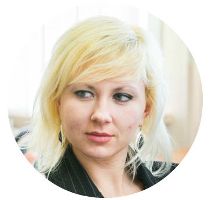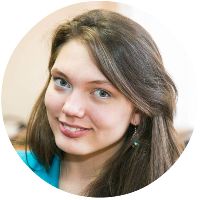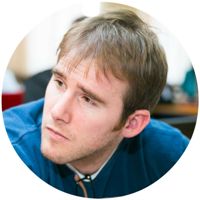Russian and American Students Research Legal Problems Together
On the 17th March 2015, 10 students from the University of Iowa, School of Law arrived in Moscow to take part in a research project with 2nd and 3rd year undergraduates at the HSE Faculty of Law. The aim of this international project is to compare legal interpretation of the same problems in Russia and the USA. In April, Russian students will go to America to finalize and present their joint projects.
The American delegation is led by Professor John Reitz, Director of Graduate Programmes and Visiting Scholars at the University of Iowa. The Russian side of the project is curated by Alexander Domrin, Professor at the Faculty of Law at HSE, who taught at Iowa for many years himself. The project is part of a broad cooperation programme between HSE Faculty of Law and the University of Iowa and is funded by a grant from US government.
The students began working together back in January. They divided up into 10 groups and started long-distance discussions on various legal topics that both Russian and American lawyers find currently relevant. In each group one American and one Russian student work together to analyse the similarities and differences of legal interpretation in both countries on such topical matters as gun control, limitations on freedom of speech in various situations, federalism, anti-terror measures, immigration law, financial transparency in business, impeachment procedures, governmental transparency, capital punishment, the right to prosecute foreign corporations. The students don’t just have to make comparisons but to assess and describe the pros and cons of different approaches to solving problems.
As Professor Reitz put it, ‘This is a chance to practice real comparative law – we have lawyers from two countries working together trying to figure out a common problem. It is very significant for both of our countries to have future leaders of the countries talking to each other and learning about each other from the experience. We are asking students to work out a joint statement on similarities and differences and strengths and weaknesses. They can of course have disagreements but we want them to at least try to find the commonalities even if it’s just common understanding of the differences.
It’s true that Russian law belongs to the great family of civil law systems and we are part of the common law but these differences in some ways are very superficial. There are of course big institutional differences but fundamentally it’s law and that’s the most fundamental significance. Both systems try to impose some kind of normative order on reality and it’s very complicated and we can learn a lot. In many ways we are very similar countries – big continental powers with multinational populations – we struggle with the same problems.
Freedom of speech and religion – it’s always a topic that’s a challenge for every country in figuring out how to accommodate secular political order with various religions. Immigration is another one – we both experience a great number of people coming into the country – legally and illegally - and it’s important to work out how we can deal with that problem. The death penalty, gun control and impeachment of the president are politically sensitive issues which law tries to provide some kind of neutral order to. We don’t start out study with the idea that there is one right answer and we have to search for it. It may well be that the different responses we get in different countries all make sense in light of the political and legal system of the countries, their social structures, etc. We might be able to learn something as a result. There are some good ideas that one country has that another country hasn’t yet tried. We may get some ideas for reform.’
Professor Domrin says that the programme gives an opportunity to compare not only the legislation, but also the systems of legal education in both countries. ‘American legal education is more pragmatic and applied. They don’t have the classical approach that we use. It has its weaknesses as well as strengths. They don’t spend time on theory, which is both good and not so good at the same time. Besides, in the USA you only start to study law at the Master’s level while in Russia we have jurisprudence as an undergraduate course.’
The students will be able to carry on their work in Moscow and in April this year 10 HSE students will go to the USA to prepare and present final presentations on their topics with the American students. There are plans to publish the results of their work in American and Russian legal journals.

Kseniya Stupak, University of Iowa
The best part of the programme is that it enables us to open doors between the two countries. We can come here and learn from the students directly because it’s very hard to learn it from the outside. American students can see that the reality in Russia is actually very different from what they hear in the US. Learning the history and roots how everything originated facilitates better understanding of the current legal system and procedures.

Catherine Otto, University of Iowa
I’ve been to Moscow before and I was really excited to come back because it’s a very interesting city. The students from HSE have been really great. I truly enjoy talking to my partner on this project. My topic is anti-terrorism policies and how the US and Russia balance that with human rights. What we’ve seen so far is that there are quite a few similarities in the two countries’ approaches. We intend to look into the rights of privacy and how far the governments can go in looking into citizens’ private activities. We’ve talked about the right to fair trial and how the countries deal with that. We’ve also talked about the European Court of Human Rights. Essentially, on this project you get new sources from each side and then try to figure out the truth, which is probably in the middle somewhere.
 Ekaterina Mokrushina, HSE 2nd year undergraduate
Ekaterina Mokrushina, HSE 2nd year undergraduate
We are studying the problem of migration - analysing the strong and weak points of regulation in both countries. I’m working mainly on the Russian legislation and Timothy Farmer, my partner from Iowa - the American. We analyse the basic legal statutes, look for similarities and differences. Russian and American approaches to the problem vary a lot. Russian law tends towards tightening up the rules on entry and fighting illegal labour immigration. America is developing a softer approach to provide migrants with living conditions on a level with US citizens and improve integration. I’m very interested in interaction between the two countries. I think that in the process of globalisation migration laws will develop and we will need people who can create laws that suit the current situation.

Josh Feil, University of Iowa
I’ve never been to Russia before but I’ve lived in Ukraine, in Kiev. I love Russian culture and this part of the world and it’s been an amazing experience. Russian literature is my favorite – I truly enjoy reading Dostoevsky, Gogol, and Bulgakov. My project here is federalism and the key issue here is how much power is allocated to the central government and to the local governments. I am particularly interested in how the history of a country affects the character of federation, especially the way the US colonies were transformed into strong states with relatively weak federal government, and how Russian federalism reflects where it came from – the Soviet Union dissolving and having to build a new country out of what was left – and to see how they decided to allocate their power.

Ekaterina Frolova, HSE 3rd year undergraduate
The programme gives us a chance to talk to people from another country which I find fascinating. I am particularly looking forward to preparing the final essay - I love those kinds of written tasks in English. We have already discussed our general conclusions on our topic – the impeachment procedure – and now we are concentrating on a detailed analysis of the two systems. We have a whole load of ideas that we plan to develop.

Bryce Morgan, Univerisity of Iowa
I was really excited to have this opportunity to come to Russia because I have already lived in Russia for several years. It’s a great opportunity to come back to see Moscow again. It’s been interesting to be able to study Russian corporate law because in the future I would love to have my career develop in Russian companies and may be work in Russian firms. I think the program would be a good bridge to that.
We are focusing on corporate financial disclosure regulations. What we’ve found is that joint-stock companies in Russia and corporations in America are very similar in their organization. One of the differences is that in the US it’s all at the state level whereas in Russia all regulation is at national level. So in Russia its strength is that it’s uniform – the regulation is the same no matter which region of the country you operate in – whereas in America it all varies with the state.
Alexander Domrin
See also:
HSE University to Improve Qualifications of Russian Lawyers from Companies Doing Business in China and India
HSE University’s Faculty of Law has developed two new Continuing Professional Development programmes: ‘Introduction to the Indian Legal System’ and ‘Introduction to the Chinese Legal System.’ What makes these programmes unique is that well-known practising lawyers from these countries will teach there, while leading local law universities will act as partners. The target audience of the programmes is lawyers from Russian companies conducting foreign economic activities in India or China.
Justice 'Ex Machina': Using Artificial Intelligence to Fight Corruption
In Mexico, a pilot project applying artificial intelligence (AI) algorithms enabled the Tax Administration Service to detect 1200 tax-evading companies and 3500 fraudulent transactions within three months – a task that would have taken 18 months using conventional methods. Despite some obvious benefits, the use of AI-based solutions to counter corruption also entails several challenges, according to experts of the HSE Laboratory for Anti-Corruption Policy (LAP) and the HSE Faculty of Law who have examined the relevant experience of several countries. A report based on the study’s* findings was presented at the XXIII Yasin (April) International Academic Conference hosted by the Higher School of Economics.
Ruslan Ibragimov: HSE University Is on the Cutting Edge of Legal Research in Ethics and Law in the Digital Environment
Last year, the Institute for Law in the Digital Environment was founded as part of HSE University. Ruslan Ibragimov, HSE Director for Legal Research, spoke to the HSE News Service about the research carried out by the new institute, some of the outcomes of its work, plans for the future, and the legal challenges surrounding the use of artificial intelligence.
‘In the Future, I Would Like to Become an HSE University Teacher’
Karina Kuzhanova, third-year student at the Faculty of Law, and Anna Yatsenko, second-year student at the Faculty of Economic Sciences, moved to Moscow from Kazakhstan to study at HSE University. They shared their impressions of studies and student life with the HSE News Service, as well as talking about some of the most inspirational things in the Russian capital.
HSE University Ranks Third Among Russian Law Schools for Graduates’ Salaries
HSE University has risen from fourth to third place in the Superjob University Ranking in terms of the salaries made by young professionals in the legal field who graduated in 2014–2019. According to the ranking’s authors, our graduates can expect to earn an average of 100,000 rubles a month in Moscow.
University of London and HSE University Offer a Second Degree Programme in Law
Students who have been accepted to the HSE bachelor’s programmes in ‘Law’ and ‘Private Law’ may simultaneously enroll in the second degree programme at the University of London to supplement their basic training. The second degree programme is also open to external students and working professionals.
Faculty of Law to Launch New Programmes with University of London
This year, the HSE Faculty of Law is launching new extended programmes in Common Law, for which graduates will receive a degree from the University of London. These programmes are open for first-year students, as well as for other students and professionals.
HSE Team Advances to Quarterfinals of the Foreign Direct Investment Moot
For the first time in the history of Higher School of Economics, the HSE Faculty of Law team has reached the quarterfinals rounds of the Foreign Direct Investment Moot Court (“FDI Moot”) 2018 in Stockholm, the most prestigious competition in the field of international investment arbitration.
Where Future Lawyers Study
A piano in the cafeteria, photographs of fingerprints and Malevich prints on the walls – these are the types of interiors that law students of the Higher School of Economics are accustomed to. In the latest edition of the Open House Project, third-year undergraduate law students Alyona Geraschenko and Baira Bembeeva take us on an excursion to the Faculty of Law.
HSE Students Come in Second at ICC Moot Court Competition
On May 19th, 2017, students of the HSE Faculty of Law took second place in the final round of the International Criminal Court (ICC) Moot Court Competition which took place in The Hague. One of the HSE students won the award for best speaker in the finals.


